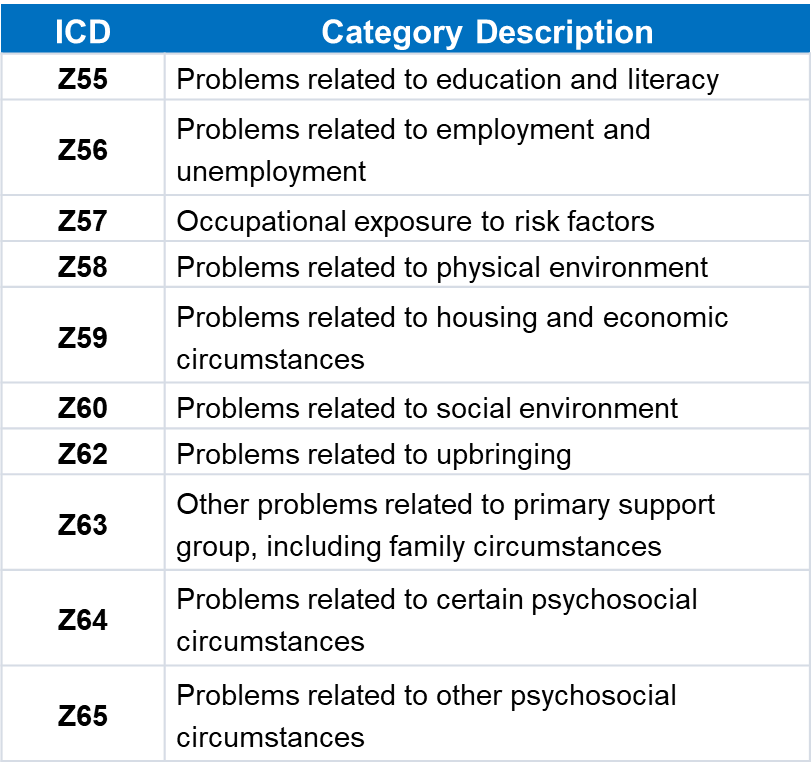
Social Determinants of Health
Social Determinants of health (SDoH) are the economic and social conditions that influence individual and group differences in health status. SDoH have a major impact on people’s health, well-being, and quality of life and can contribute to wide health disparities and inequities.
A primary approach to achieving health equity is by addressing SDoH. Health equity is “when everyone has the opportunity to ‘attain their full health potential’ and no one is ‘disadvantaged from achieving this potential because of their social position or other socially determined circumstances’”.
The following list provides examples of SDoH, which can influence health equity in positive and negative ways:
- Income & social protection
- Education
- Unemployment & job security
- Working life conditions
- Food security
- Housing & basic amenities
- Early childhood development
- Social inclusion & non-discrimination
- Structural conflict
- Access to affordable health services
CMS is currently reviewing whether enhancements can be made to the CMS HCC risk adjustment model to address the impacts of SDoH on patients’ health status by incorporating additional factors that predict the costs of Medicare Advantage patients.
The ACO REACH model seeks to improve the quality of care and healthcare outcomes for traditional Medicare patients. Part of this model requires participants to have a robust health equity plan describing how they will reach underserved populations. One of the goals is to reduce health disparities within the population.
Documentation & Coding
The official ICD-10-CM Guidelines for Reporting state that codes describing problems or risk factors related to SDoH should be assigned when the information is documented.
These codes should be assigned only when the documentation specifies that the patient has an associated problem or risk factor. For example, not every individual living alone would be assigned code Z60.2, Problems related to living alone.
Coders may utilize documentation of social information from social workers, community health workers, case managers, or nurses if the documentation is included in the official medical record.
Patient self-reported documentation may be used to assign codes for SDoH if the self-reported information is signed-off by and incorporated into the medical record by either a clinician or provider.

Resources: Health.gov; ACO REACH; MA HCC Model; ICD-10-CM Guidelines
About the Author


